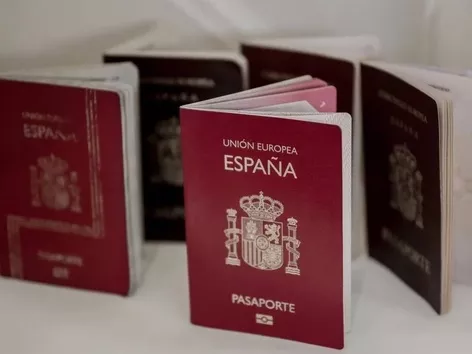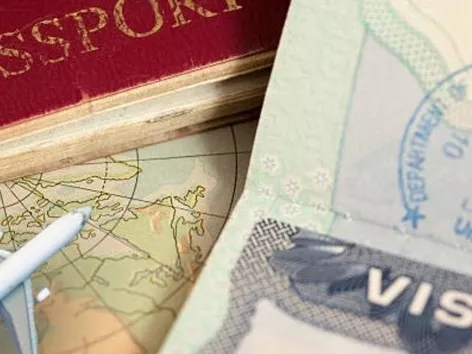Spanish citizenship for descendants: the country has extended the acceptance of applications until October 2025

Spain has extended the Law of Democratic Memory, also known as the "Ley de Nietos," which allows descendants of Spaniards expelled during Francisco Franco's regime to obtain Spanish citizenship. Find out who has the right to issue a passport and what the procedure is
Spain has extended the Law granting citizenship to the descendants of Spaniards who were expelled during the regime of dictator Francisco Franco. From now on, you can apply until October 21, 2025.
In this way, the state tries to enable the maximum number of descendants of exiles to fully integrate into the Spanish community, as well as to strengthen the ties between Spain and its citizens, scattered throughout the world due to historical circumstances.
What is this law and who can get Spanish citizenship?
The law is officially called the Law of Democratic Memory, known in Spanish as “Ley de Nietos”, and was approved by the Agreement of the Council of Ministers in 2022. The document became popularly known as the Law on Grandchildren.
According to the regulations, descendants of individuals who were persecuted and expelled from Spain during the regime of dictator Francisco Franco are eligible to apply for Spanish citizenship.
Who exactly can obtain Spanish citizenship according to the law?
1. Persons born outside of Spain whose father, mother, grandfather or grandmother are or were originally Spanish.
2. Applicants born outside of Spain whose father, mother, grandfather or grandmother lost or renounced Spanish citizenship due to expulsion.
3. Children born outside of Spain to Spanish women who lost their citizenship by marrying a foreign citizen before the 1978 Constitution entered into force.
4. Sons and daughters of those who obtained Spanish citizenship on the basis of the Law on Historical Memory 52/2007.
You will need health insurance to safely move and find employment in a new country. You can issue an extended policy on our website using the link.
1. Collect the documents - prepare all the necessary documents confirming your origin and the expulsion of your ancestors.
2. Apply through the nearest Spanish consulate or embassy.
3. Attend the interview and pass the screening.
4. Wait for approval and get your Spanish passport.
How many people have already applied for Spanish citizenship under the Descendants Act?
As of July 2024, consular departments received 301,121 applications. Most of them were filed in Argentina and Cuba. 150,002 requests have already been approved and 1,521 have been rejected. Currently, more than 46,000 cases are in active work and 151,000 hearings are scheduled.
In total, in less than two years of the Law, more than 95% of the applications were received at the Spanish Consulates in Latin America and at the Consulate General of Spain in Miami. In particular, according to the Executive Power, the five consulates general of Spain in Argentina represent 40% of applications.
The extension of the Law on Descendants underlines Spain's desire to remedy historical injustices, as well as to enable descendants of Spanish exiles to enjoy the benefits of Spanish and EU citizenship.
Also note that applicants do not need to renounce their current citizenship. Spain recognizes dual citizenship for this category of people.
As a reminder, in 2024 Italy also simplified the procedure for obtaining citizenship by origin, details here.
Photo – Ricardo Rubio (Europa Press)
Igor Usyk - Head of Legal Department at Visit World
To ensure a safe move to Spain, I advise you to contact a specialist. My colleagues, qualified specialists with legal education, will help you avoid unpleasant situations during migration abroad.
Products from Visit World for a comfortable trip:
Checklist for obtaining a visa and necessary documents in Spain;
Legal advice on immigration to Spain;
Travel insurance for foreigners in Spain;
Medical insurance all over the world.
Recommended articles
2 min
Expats
Why is Spain the best country for digital nomads?
Over the past few years, digital nomadism has become a way of life, and the list of countries offering visas is only growing. However, Spain is recognized as one of the best countries for digital nomads. Find out more about why Spain is the best country for digital nomads in 2024
14 Dec. 2023
More details2 min
Expats
Non-lucrative Spanish visa in 2025: criteria, requirements and common mistakes when designing
Expats from different parts of the world are attracted to the Spanish way of life. Any foreigner who has a sufficient level of financial support can move to the country. Find out what you need to apply for a non-profit visa to Spain and the most common mistakes applicants make
17 Jan. 2025
More details2 min
Popular
Move to Tuscany: Italy will pay from 10,000 euros to foreigners who settled in mountain towns
Tuscany is one of the most famous regions of Italy, which attracts many tourists with fantastic landscapes, perfect villages and the most delicious dishes. However, the economic crisis contributes to the reduction of the local population. To attract new residents, the regional government launched the "Residence in the Mountains 2024" program. Find out how a foreigner can get from €10,000 to move to Tuscany and how attractive the prospect of living here is
31 Jul. 2024
More details1 min
Travels
The government of Cyprus has announced plans to join the US visa-free program by 2025. In particular, the state leadership has already submitted to the Parliament a draft law on the ratification of the agreement signed with the USA within the framework of joining the program. Find out what will change for citizens of Cyprus in the near future
09 Jul. 2024
More detailsAll materials and articles are owned by VisitWorld.Today and are protected by international intellectual property regulations. When using materials, approval from VisitWorld.Today is required.
